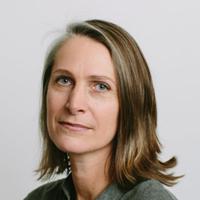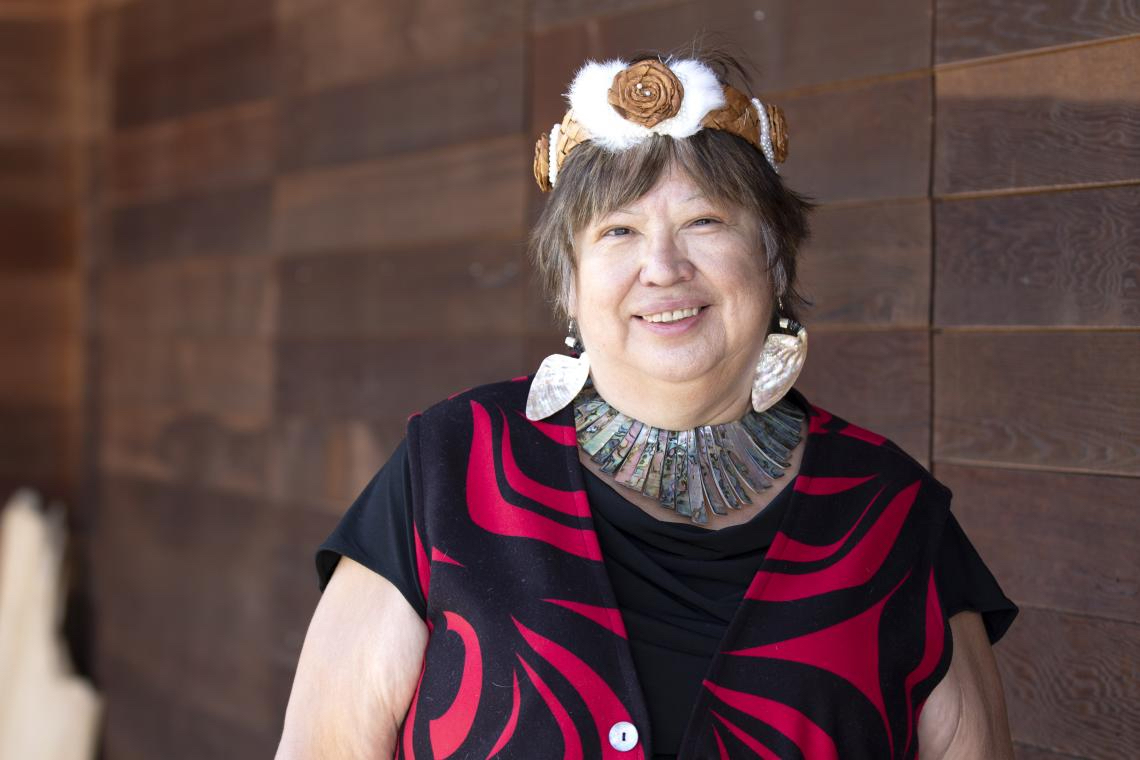Three First Nations are asking B.C.’s Information and Privacy Commissioner to force the government to share the locations of nearby COVID-19 cases, something they say is essential to the health of remote communities.
The Heiltsuk Nation, Nuu-chah-nulth Tribal Council and Tŝilhqot’in National Government said in a news release today that their application seeking the information is supported by the BC Freedom of Information and Privacy Association and the BC Civil Liberties Association.
If successful, the order would force the province to reveal the location of confirmed and presumptive cases near their communities.
Nuu-chah-nulth Tribal Council president Judith Sayers said the province’s secrecy is endangering First Nations.
“Their non-disclosure of this information is a great risk to our vulnerable communities,” she said. “The B.C. government just won’t work with us on this. We keep telling them, we need to know, and then we can have our protocols. We can tell everybody stay at home, do whatever we need to.”
The number of COVID-19 cases on reserves in B.C. has jumped 40 per cent in the last week, with Indigenous Services Canada reporting 103 cases Tuesday.
The effort to force disclosure came a day after the Heiltsuk Nation announced two COVID-19 cases in Bella Bella, the first for the remote West Coast community. Heiltsuk Tribal Coun. Megan Humchitt said the entire community is in a 14-day self-isolation period, with a curfew and essential travel order also being enforced.
If the people who tested positive had not voluntarily reported, Humchitt said, the nation would not have been able to act as quickly, risking further spread of the virus.
“We are asking the province to share their information. We’re not asking for details. We’re asking for proximate information shared with us in a timely manner because with small communities such as ours, time is precious,” she said.
“Time is of the essence because the nature of our community and the nature of our culture,” Humchitt said, noting many community members live in multi-generational houses. “So, any information that we can get right away will help us to respond to the virus, to any potential cases, and help us to protect our Elders and those who are immune-compromised in our community.”
“Our Elders carry on our culture and our language and losing an Elder is devastating for the community. Losing anyone is devastating for our community. But there is so much knowledge that is held in our Elders.”
Humchitt said that while information about local cases makes its way to leadership eventually, the community needs to be able to respond immediately.
“The nature of the relationship between Indigenous people and the government has to change,” she said. “We cannot continue to wait, especially when it comes to our health, and it’s unfortunate that the government doesn’t act in a truly collaborative way.”
The nations say B.C.’s refusal to share information on nearby cases violates Section 25 of the Freedom of Information and Protection of Privacy Act, which “requires the head of a public body to disclose information relating to a risk of significant harm to people or the environment, or where disclosure is clearly in the public interest.”
Remote communities have been calling for greater support from government since the World Health Organization declared COVID-19 a pandemic in March.
As the province began to reopen in early June, the Nuu-chah-nulth Tribal Council issued a press release asking for greater access to testing, screening of non-residents entering the community and more effective contact tracing.
The council also called for communications protocols with the province “to ensure the early and prompt reporting by the health authorities to the Nuu-chah-nulth Nations, under appropriate confidentiality protections, of all relevant information relating to suspected and confirmed cases of COVID-19 in Vancouver Island communities, including Indigenous communities.”
On June 24 the Nuu-chah-nulth, together with the Heiltsuk and Tŝilhqot’in, renewed the calls for more effective information sharing, testing and contract tracing and said they would restrict travel to communities until the conditions were met.
The Nuu-chah-nulth Tribal Council announced its first case of COVID-19 within the community on Sept. 3. So far, there have been no more cases reported.
Sayers said the tribal council has been told by the province that it would only be notified of community cases if there is an outbreak. But more detailed information is needed to allow First Nations to respond to the threat from nearby cases, she said
“We don’t need to know a person’s name. We only want the location,” Sayers said. “We just need to use that to make our decisions in our community. We offered to enter into any kind of confidentiality agreements with the province on that information, and they just think it’s something we don’t need to know.”
The nations say the failure to disclose the information violates the province’s commitment to accept the principles of the UN Declaration on the Rights of Indigenous Peoples. The declaration includes First Nations’ rights to self-determination, self-government and to develop programs for maintaining health and well-being.
Sayers said provincial health officer Dr. Bonnie Henry has acknowledged First Nations are among the most vulnerable to pandemic risks.
“But she won’t go as far as to say, ‘We should release this information to them.’ So they left us no choice but to do this. We tried to do it at the table, we tried to do it publicly, and now this is an application we have to bring,” she said.
Sayers said she has no idea how long the Office of the Information and Privacy Commissioner might take to review the application.
On Monday, Henry said revealing nearby COVID-19 cases is unlikely to be effective because people move around the province.
“The exposures that have led to cases in a number of smaller and more remote communities have not been related to a neighbouring community, for example,” she said during a provincial health briefing. She added that she often doesn’t have the information.
“We are working very closely with the Heiltsuk First Nation, with the coastal First Nations and with all of our First Nation leaders. Through our First Nations Health Authority, very early on in this, I compelled a data linkage for every single case to make sure we could identify people by indigeneity and we notify the First Nations Health Authority and leadership in an affected community as soon as we know,” Henry said. “In many cases, the community will know before we know when somebody is ill and before they go for testing.”
Henry added the province has to balance supporting First Nations in understanding the risk in their communities with protecting personal health information.
The BC Freedom of Information and Privacy Association and BC Civil Liberties Association released a letter today supporting the First Nations’ application.
The failure to comply with the Freedom of Information and Protection of Privacy Act “is unacceptable given the history of colonization, including how previous pandemics have disproportionately harmed Indigenous communities and stolen their Elders,” the letter states.
The nations have the right to self-governance and to develop programs to maintain the health and well-being of their people under the Declaration on the Rights of Indigenous Peoples Act passed by the legislature, the associations noted. “By refusing to share the requested health data, with appropriate confidentiality provisions, the government is preventing these communities from exercising the very rights that the province recognized when it enacted DRIPA.”
Humchitt said that while the news the pandemic has reached remote Bella Bella was creating some stress and anxiety, community members were pulling together to support one another. She added that the community is conducting its own culturally-safe contact tracing.
“A contract tracer in our community will be able to respond quite quickly. She has rapport with all our community members and there’s that sense of trust there,” she said, adding that experiences with racism within the health-care system make some community members reluctant to share personal information.
“For our community to trust these faceless contact tracers and health organizations that they don’t know is a really difficult thing for some people because it can be very traumatic, because people have had traumatic experiences in the health-care system,” she said.
Humchitt praised Heiltsuk community members for supporting one another during pandemic.
“There’s this talk about the stigma, but that’s not who we are, culturally. When we face any type of difficult situation, we always stand together, and we always support one another. This is one of those extremely difficult situations and we need to be able to communicate with our community and make those decisions,” she said.
“I just really want to commend our community on how well they’re working through this and how well they’re supporting and uplifting one another, because it’s quite a stressful time.”
In addition to the application to the Office of the Information and Privacy Commissioner, the First Nations are circulating a petition asking the public to support them in calling on the government to release the information. ![]()
Read more: Indigenous, Health, Coronavirus, BC Politics
















Tyee Commenting Guidelines
Comments that violate guidelines risk being deleted, and violations may result in a temporary or permanent user ban. Maintain the spirit of good conversation to stay in the discussion.
*Please note The Tyee is not a forum for spreading misinformation about COVID-19, denying its existence or minimizing its risk to public health.
Do:
Do not: